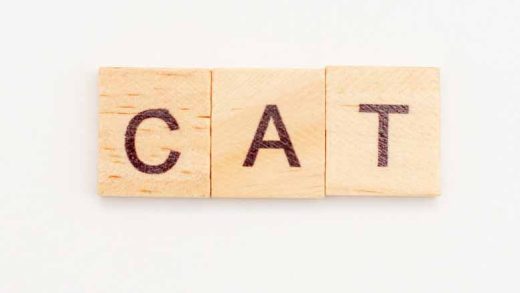Breast milk is the only source of nutrition for newborn babies. According to the World Health Organization and many trusted paediatricians, newborns must be exclusively breastfed for the first six months after birth. Breast milk contains many nutrients that not only satiate the baby’s hunger but also quench their thirst.
Breast milk is not only beneficial to the baby but also to the mother in more than one way. After delivery, the mother might be worried about losing weight and getting back to where she was before pregnancy. Breast milk is a proven way for the mother to shed weight.
Composition of Breast milk:
Breast milk is highly nutritious. It has a lot of immunoglobulins – Ig for short, vitamins, proteins, sugars, and fats. Immunoglobulins are the components that combat diseases and provide immunity and protection against a variety of illnesses.
- 1. Macronutrients: a) Carbohydrates
- b) Proteins
- c) Fats
- Micronutrients: a) Minerals
- b) Vitamins
- Hormones
- Growth factors
These components are crucial for the baby’s overall growth and development. They help the baby in adjusting to the environment, promoting mental growth, and reaching developmental milestones on time.
- Some signs of healthy breastfeeding:
- Their mouths look moist after feeding. Your baby appears content and satisfied after most feeds.
- Your breasts feel softer after feeding.
- Your nipple looks more or less the same after feeding – not flattened, pinched or white. You may feel sleepy and relaxed after feeding.
- Healthy weight gain of the baby.
Advantages of breast milk to the baby:
- Highly Nutritious:
- a) when compared to formula, since breastmilk is highly species specific, they are better absorbed by the baby.
- b) It provides all the necessary nutrients to the baby for brain development.
- c) Also great for the eyes as they help in retinal conduction.
- Preventing Infection:
- a) Breast milk is composed of many disease-fighting factors which aid in preventing various illnesses.
- b) Babies who are breastfed are less prone to digestive, lung and ear infection.
- c) Even premature babies, when breastfed, are less prone to serious ailments. Breastfeeding also aids in faster recovery.
- d) Even if a breastfed baby is likely to get an infection, the condition is far less severe, and the baby heals quickly.
- Preventing other infections:
- a) A lower risk of SIDS (severe infant death syndrome)
- b) Less prone to allergies and other autoimmune conditions.
- c) Breast Milk promotes the growth of healthy flora in the baby’s gut, thereby helping to prevent digestive ailments.
- d) A lower risk of getting Leukaemia.
Advantages of breastfeeding to the mother:
- a) Helps protect against many diseases such as: high blood pressure, cardiovascular diseases, high cholesterol, breast cancer, ovarian cancer, endometrial cancer, thyroid cancer, osteoporosis, type 2 diabetes.
- b) Quick recovery from childbirth: Breastfeeding process involves the release of oxytocin, which helps in contracting of the uterus, in turn helping in attaining the normal size or the uterus.
- c) Increasing physical and emotional bonding: Many researchers have found that the bonding from breastfeeding may help reduce social and behavioural problems in both children and adults.
- d) Establishing trust: Breastfeeding mothers develop a special, trustworthy bond with their baby as they learn to read infant cues more quickly.
- e) Convenience: You can breastfeed anywhere without needing to worry about cleaning bottles, warming milk, or other tasks that come with bottle feeding.
How to store breast milk: If you are producing excess breast milk, it can be a challenging issue to manage. Many mothers worry about producing too little milk. You might have heard not to throw away excess milk but to freeze it. You can freeze it in a sterilized plastic bottle and store it in the refrigerator.
By freezing the milk, you can safely store the milk without breaking the essential bonds of all the nutrients present in the milk. You can use safe plastic bottles which are BPA (Bisphenol A). Breastmilk covers are also available in the market.
How long breast milk can be stored:
Let us now explore how long breast milk can be stored. Freshly expressed breast milk can only be safely stored if refrigerated at 40 degrees F (4 degrees C). This can be viable for up to 4 days. However, fresh breast milk can also be stored in the freezer at 0 degrees F (-18 degrees C) or colder safely for up to 6 to 12 months.
Even if you are working and separated from your baby, your newborn won’t go hungry.
Breast milk stored at room temperature:
Freshly expressed breastmilk can be stored for up to 6 hours at room temperature before the protein bonds break down and milk starts to get sour. It’s safer to use breast milk stored at room temperature within 4 hours after pumping, especially in a warm room.
If you’re a mother producing extra milk and your newborn needs frequent feedings every 2 hours, you can express and save the milk for later use.
How to store breast milk and use: Since we have already explored some of the best and safest ways to store breastmilk, let us now see how we can use frozen milk.
Thawing is the best way to use stored or frozen milk. Thawing simply means softening something or bringing it back to its original condition after freeing it.
Some ways of thawing:
- By running tap water on the bottled milk so that it reaches room temperature.
- By running warm water on it if you want to use it right away.
Do not de-freeze the already thawed milk. If you do so, the milk enzymes and the immunomodulators will break down which can harm your baby.
One thing to always remember is to never microwave frozen milk. Because there is a high chance of over-heating the milk and spoiling the milk.
So, you lovely new mothers, now know some solid information about breastfeeding. Let’s focus on getting your baby all the nutrients they need.
If you are looking for a good playschool near you, Kangaroo Kids International Preschool can be a great option to explore. For admission related queries, contact us today!









